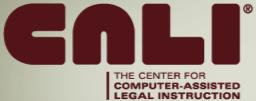In response to student inquiries regarding the availability for group study of rooms G80, G81, 273, 387, 389 and the Library’s Casual Reading Room (these rooms are referred to herein collectively the “Study Rooms”), the Law School has implemented the following policy, effective immediately:
While classes are in session, SAME-DAY reservations for Study Room use in the afternoon and/or evening shall be made via a sign-out sheet available at the Circulation Desk in the Library. Reservations shall be made in person at Noon or thereafter – not earlier. Only same-day reservations will be accepted – no advance reservations permitted.
Under this new policy, room availability will no longer cease at library closing times, providing evening reservations are made prior to the last sign-up time for the day. In cases in which a room reservation extends beyond 7:30pm Sunday through Thursday, or beyond 4:30pm on Friday or Saturday, the student making the reservation will be responsible for securing the room in question (closing windows and locking doors) at the end of use. Evening reservations that begin after 7:30pm (Sun-Th) or 4:30pm (Fr & Sat) must be reserved as of those times to insure the room remains open for their use. Students making such reservation will be responsible for the room starting at 7:30 or 4:30, respectively.
During study periods, Study Rooms will be available on a first-come, first-served basis 24 hours a day. There will be no reservation procedure.




